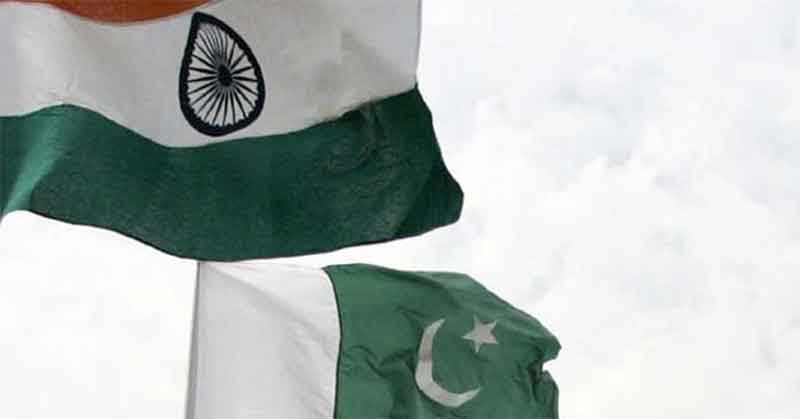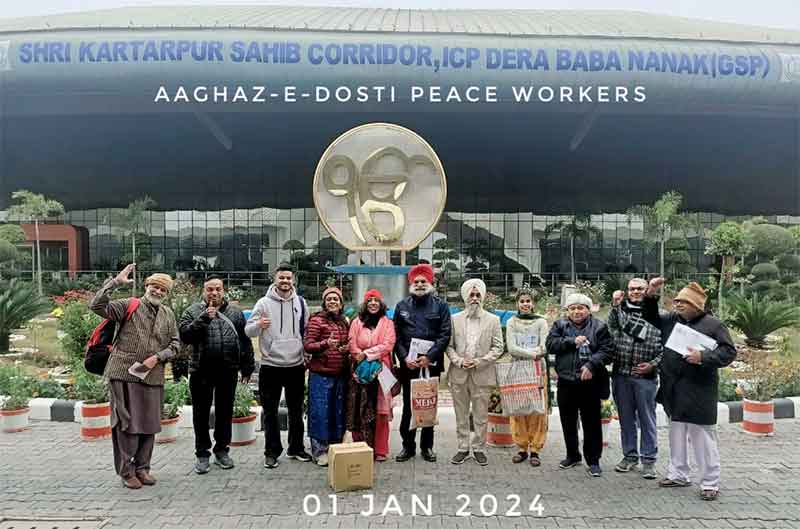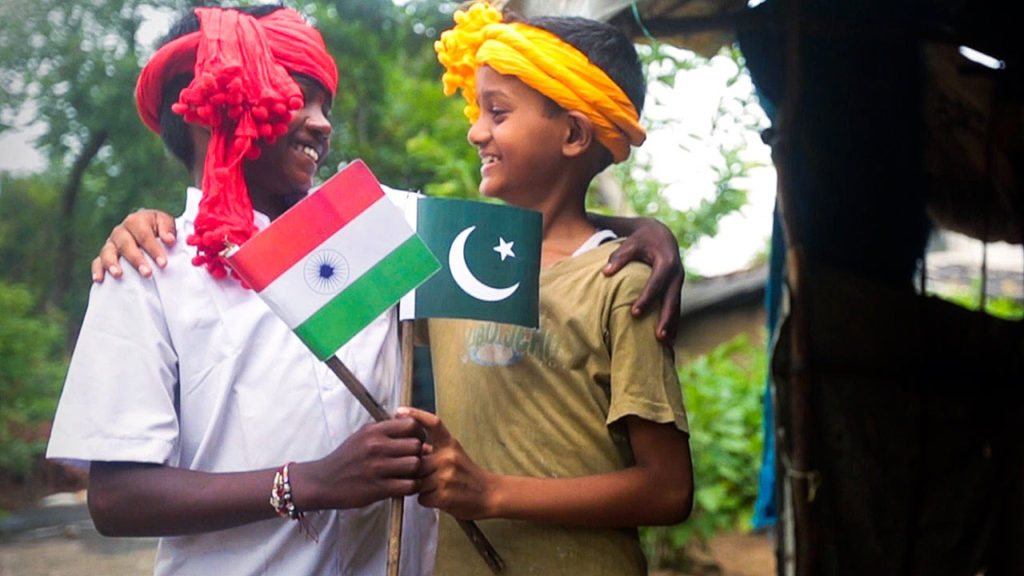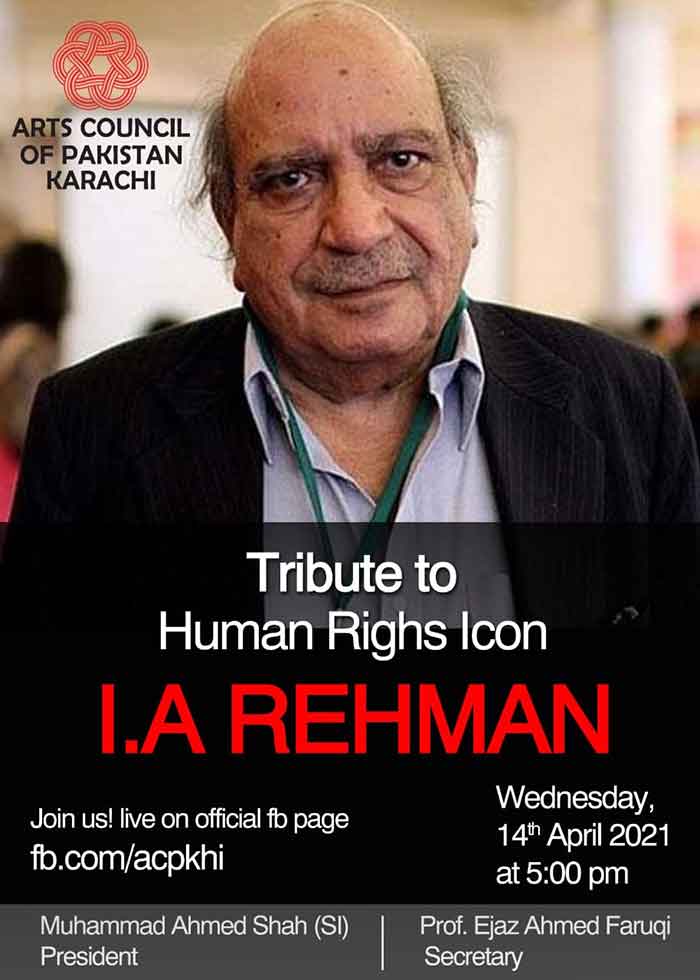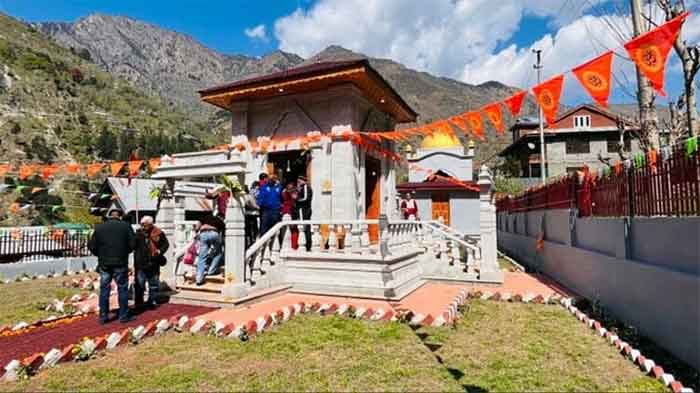
Recently, the Home Minister of India spoke about his government’s desire towards opening of Sharda Peeth cross LoC Corridor on similar lines of Kartarpur Corridor. Few times back, there were media reports that a proposal for opening of Sharda Peeth Corridor was also in consideration by the Govt. of Pakistan. These beginnings are not just important due to long pending wishes of devotees, but also have a great importance due to relations between the two nuclear powered states who have fought wars and carried a bitter relation despite being immediate neighbours.
Despite being apart as two sovereign states, the cultural linkages of India and Pakistan are inseparable. Spiritual connect is one of the important links which connects people and their emotions towards each other. Whether it is Nankana Sahib or Katasraj in Pakistan or Hazrat Nizamuddin Shrine and Ajmer sharif in India; people desire and travel to see and feel these places. There is also a need to facilitate such travel of people and both the countries under their joint Ufa declaration in 2015, already hold a position that a mechanism for facilitating religious tourism would be developed. The first such corridor was Kartarpur corridor which was opened three years ago by Govt. of India and Pakistan and exemplified success and hence other such possibilities should also be explored.
The Sharda Peeth holds significant religious and cultural importance for people on both sides. Located within 20 kilometers from the Line of Control towards the Pakistan side, it is considered one of the holiest sites for Hindus, particularly for followers of the goddess Saraswati and Kashmiri Pandit community. However, due to political tensions between India and Pakistan, access to this ancient pilgrimage site has been severely restricted for decades.
The Sharda Peeth is believed to be the place where the 8th-century philosopher and theologian Adi Shankaracharya visited and opened its Southern gate after passing the challenge by many learned philosophers and scholars and it is believed that temple existed since 12 century BC. It is said that during ancient times many great scholars, philosophers, and saints have come and studied at this renowned educational institution and it appears in old texts such as in Purana, in texts of Bilhana and Kalhana and in text of Al-Biruni. Scholars claim that it served as a Center of learning and knowledge for various ancient civilizations, including Buddhists, Jains, and Hindus. It is believed that as a centre of learning, this peeth was among the highest learning centres in the subcontinent.
The historical and cultural significance of the Sharda Peeth cannot be ignored. Opening the Sharda Peeth corridor to link LoC on both sides would not only facilitate religious pilgrimages but also boost cultural and people-to-people exchanges. It would allow both sides to reconnect with their shared heritage, promote dialogue, and foster understanding. This could lead to improved relations between the two countries, fostering an atmosphere of peace and cooperation in the region.
The Kartarpur Corridor, which was recently opened, serves as a shining example of the positive outcomes of such initiatives. It has facilitated the pilgrimage of Sikhs to the Gurdwara Darbar Sahib, the final resting place of Guru Nanak Dev Ji, in Pakistan. The corridor has not only enhanced religious tourism but also created opportunities for people from both sides of the border to interact and build bridges of understanding.
Given the success of the Kartarpur Corridor, there is a growing hope to open the Sharda Peeth corridor. It is an opportunity to showcase the religious tolerance and inclusivity that both nations strive for. Moreover, with advancements in technology and infrastructure, it has become increasingly feasible to facilitate travel and ensure the safety and comfort of pilgrims. Opening of a corridor to access Sharda Peeth would also bring opportunities for local trade and would support economic growth around the peeth on both sides.
It is high time India and Pakistan put their political conflicts aside and worked towards opening the Sharda Peeth corridor. This small step could have a tremendous impact on peace-building efforts and open doors for further dialogue and cooperation between the two nations. By allowing people to visit and pay homage to this sacred site, we can truly celebrate our shared heritage and move towards a more peaceful and compassionate future.
Ravi Nitesh is a social activist. He tweets @ravinitesh


